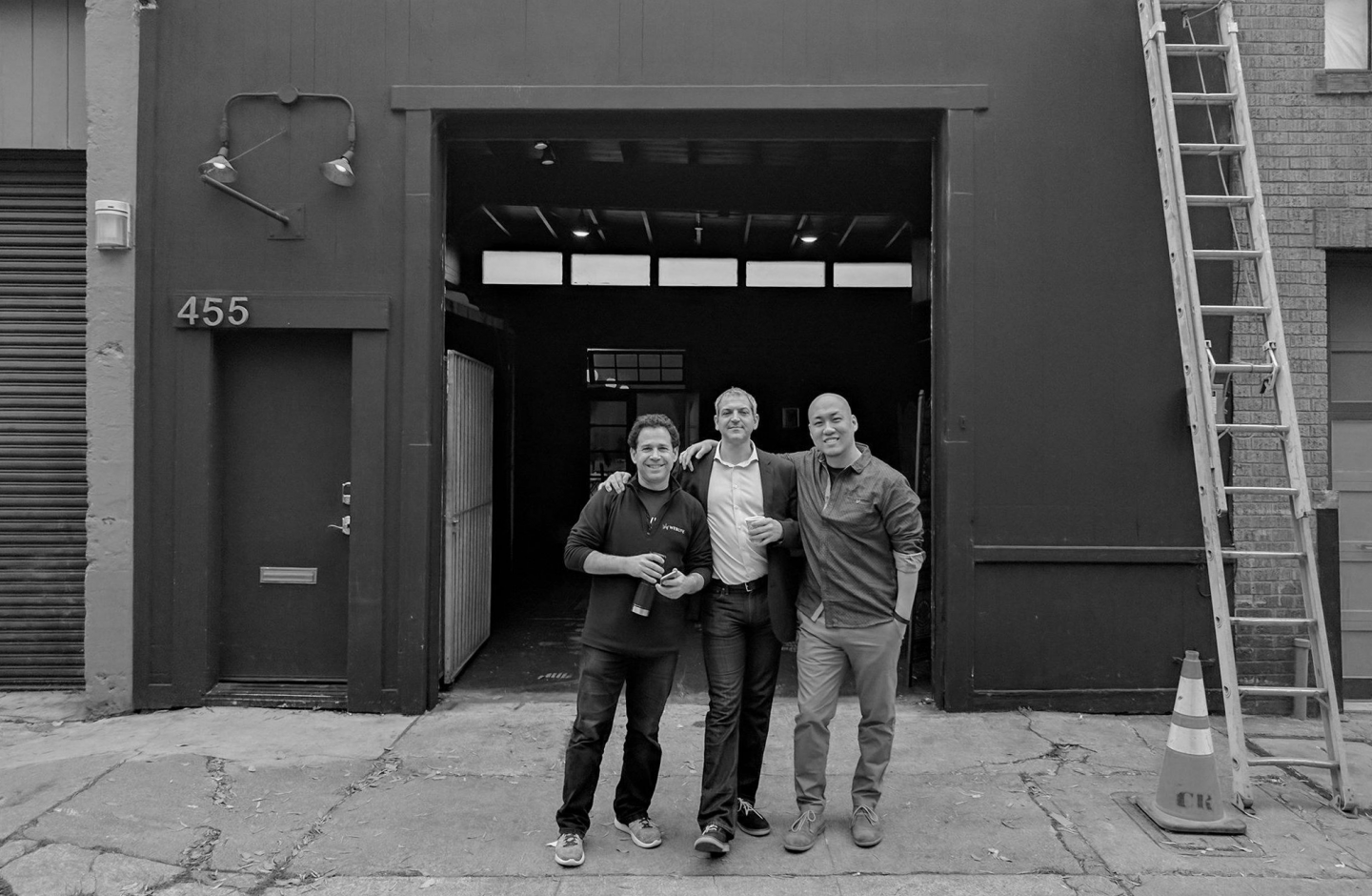Co-founders: Why it is so hard?

Photo: Weblife Co-founders - David Melnick, Adrian Roston, Kenny Lee
In the early days of the startup with my co-founders (pictured above), we unknowingly hosted a low-budget happy hour session on the wrong side of town.
As the event kicked off, we prayed that no one would notice the person openly defecating down the street, and hoped that the noisy roofing crew (see ladder in the photo), that we paid to “take a break”, didn’t decide to come back early. Miraculously, the wine and hor’s d ‘oeuvres from Costco loosened up the atmosphere, and we landed a major Fortune 500 account that eventually led to a successful exit and acquisition. As with any good entrepreneurial journey, the highs were high, and the lows were low.
The entrepreneurial ecosystem (e.g., books, websites, and blogs) thrives on popular topics such as product-market fit, go-to-market strategy, fundraising, and unicorn successes. However, aside from family support, the assembly of the right co-founding team is the “make it or break it” decision that determines the future success or failure.
According to post-mortems conducted by CBInsights in 2019, “not the right team” is the top 3rd reason out of 20 why startups fail. Number 1 and 2 reasons are “no market need” and “ran out of cash,” respectively. Throughout our startup journey, we were pretty darn close to joining the 90% failure rate club due to the top 2 reasons.
Do you know what got us through it? Each other…we were the right team. If entrepreneurs value the importance of finding co-founders, why do we often fail? I can think of 3 reasons.
1. Relationships are hard.
Going out of your regular daily routine to expand your professional and social network can feel intimidating or unnatural. Studies show that men and women across all generations feel more isolated and lonely than ever, especially in digitally connected social networks. Maintaining meaningful relationships requires constant nurturing and pruning. Relationship building is not a natural skill that everyone possesses and is not taught in most schools.
2. Vulnerability is hard.
You need co-founders because the right team can do more than an individual. Admitting to yourself and others that you have weaknesses requires a certain level of maturity and self-reflection. Thoughts of rejection, humiliation, and judgment are part of human nature and need awareness and practice to overcome. Defaulting to openness and transparency doesn’t come naturally to most people.
3. Empathy is hard.
Understanding people’s true motivation, ethics, and values is difficult. Studies have shown that different backgrounds, cultures, and life experiences, nets positive performance. However, misunderstandings and conflicts are inevitable when co-founders are challenging and pushing each other. In high-pressure/high-stress situations, it’s not a conditioned human response to lean on our empathetic skills.
A 2018 study published in the Journal of Social and Personal Relationships estimated that, on average, it takes about 80-100 hours with someone before you consider them a friend, and over 200 hours to become good/best friends. These are parallels that can be drawn with co-founders; relationships are not forged easily nor quickly. If you are looking for ways to build a stronger relationship with your cofounder(s), here is a helpful toolkit from Techstars to assist navigating cofounder relationships.
If you can’t find a co-founder, does that mean you are disadvantaged and out-of-luck? A 2016 study that analyzed startups in Crunchbase reveals that co-founders may not be necessary to be successful. It turns out that close to 50% of startups that have raised $10M or more are solo founders. Undoubtedly, more people means more potential points of friction and conflict that can break apart the startup.
Ultimately, going solo or joining/assembling a team is a personal choice. But as a co-founder who has gone through the startup journey and made it out alive, I can say that there were moments where we would’ve given up had it not been for each other. I encourage all entrepreneurs to take the time to find the right partner(s) to enjoy the startup journey and learn from each other.
As much as your friends and family try to understand, only your co-founders will fully appreciate the wild ride of the startup roller coaster.
During the lows, you’ll have someone to lean on, and during the highs, you’ll have someone for high-fives and celebrations. Success tastes so much sweeter when you can share it with those that you respect and love.
Kenny Lee
Senior Director of Product Management (Co-founder of Weblife)
Kenny Lee has a beautiful family with two small kids and married his childhood sweetheart. He lived in many cities around the world but now resides in Seattle, WA. Kenny spent most of his career in the information security industry as a consultant, corporate manager, and a co-founder of a tech startup that was acquired by Proofpoint. He is grateful to be in a position to drive innovation for the next generation of advanced security products. During his spare time, he enjoys being active with his family and learning topics that put him into a beginner's mindset.
Weblife, a cybersecurity browser-isolation service, was founded in 2013. It was acquired by Proofpoint in December 2017. By combining Weblife.io’s browser-isolation technology with Proofpoint’s industry leading threat detection and intelligence capabilities, enterprises can now secure both corporate and personal email from advanced threats and compliance risks.
